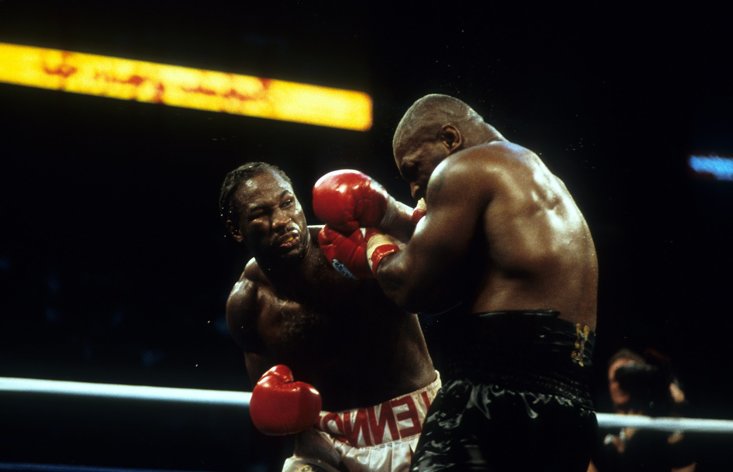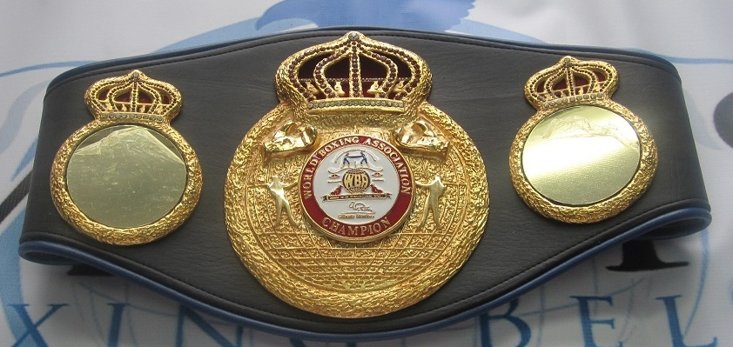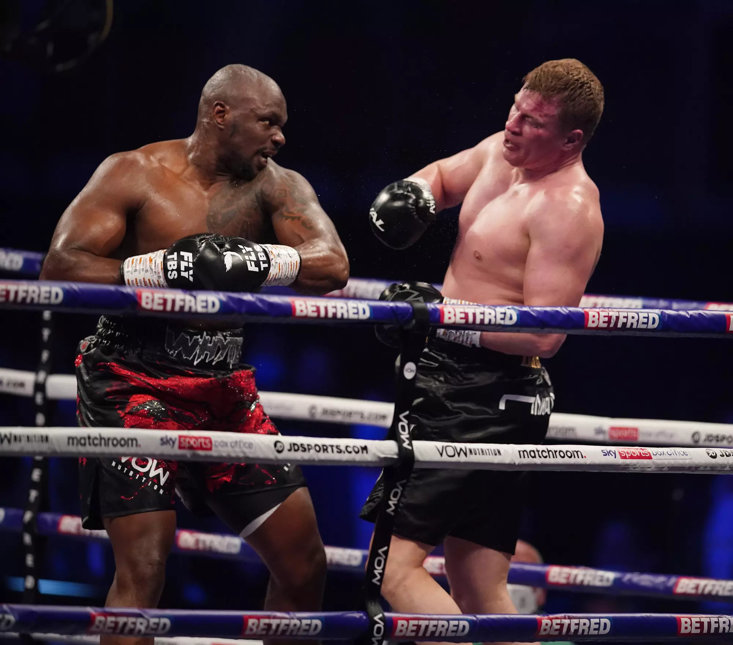If you’re a long-time boxing fan, you’d be forgiven for thinking the abbreviation WBA stands for We’re Bad, Always. Certainly, the World Boxing Association has a lot to answer for. To truly understand their strange and unruly governance of the sport, one need only look at the plight of one of their daftest creations. To truly grasp this messy organisation, you must trace the history of the WBA ‘regular’ heavyweight championship.
The WBA crowns two world champions in most weight divisions, a ‘regular’ champion and a ‘super’ champion. The original germ of this idea came from a suggestion by undisputed heavyweight champion Lennox Lewis. In 2000, the Brit was forced to give up his WBA belt when he chose to defend his unified crown against Michael Grant instead of WBA mandatory John Ruiz. The idea behind the ‘super’ title was that it would come into effect when a WBA champion had unified their belt with that of another organisation, allowing them more leeway to meet their numerous mandatories. The principle itself is sound, but becomes muddied when you take into account what followed.

In addition to this ‘super’ status, the Association introduced something called the WBA ‘regular’ championship. In the event of one of their champions unifying and becoming a ‘super’ champion, a separate world champion would be crowned in the same division. The very idea was ridiculous from its conception. In a sport already tarnished by the crowning of four recognised world titleists per division, with the IBF, WBC and WBO also appointing their own rulers, introducing two world titles from the same organisation in a division was ludicrous.
Despite being the point of its genesis, the heavyweight division would have no need of a ‘regular’ champion until 2011. IBF and WBO heavyweight champion Wladimir Klitschko defeated WBA champion David Haye in 2011, thus becoming the first ‘super’ heavyweight champion. Because having the world’s consensus number-one hold your belt isn’t enough, the WBA swiftly minted a ‘regular’ belt, which was won by Alexander Povetkin. Thus began a lineage of stupidity that has run alongside the division’s genuine champions for nearly a decade.
Povetkin would lose his designation after being defeated by ‘super’ champion Klitschko, but he remains the only ‘regular’ claimant to face the main WBA champion during his reign. Ruslan Chagaev won the vacant championship against Fres Oquendo, and after one successful defence he faced Lucas ‘Big Daddy’ Browne. This would produce a bizarre chapter in the history of this spurious title.
Untidy but powerful, Australian Browne pulled off a huge shock when he upset Chagaev by tenth-round knockout. His joy would be short-lived, as the new champion failed a post-fight drug test for the banned substance clenbuterol. However, while the WBA was quick to strip Browne of the title, the result of the fight was not overturned. The win remains on Browne’s record, and he is still recognised as a former WBA ‘regular’ champion.

Chagaev was then stripped of the title the WBA had just returned to him for refusing to pay sanctioning fees. To show how seriously they took doping rules, the sanctioning body then ordered Browne to fight Shannon Briggs for the vacant championship. In the least surprising part of this whole mess, that fight never happened due to Browne failing another drug test.
The next champion was one Mahmoud ‘Manuel’ Charr. ‘Diamond Boy’ outpointed Alexander Ustinov to technically become Germany’s first heavyweight champion in 85 years, though few acknowledged this as a serious achievement considering the belt involved. Proving that they are above the law, even when it comes to their own rules, the WBA kept Charr as champion when he failed a drug test ahead of a 2018 defence against Fres Oquendo. Lucas Browne probably wasn’t best pleased.
In fact, they kept him as champion throughout his subsequent suspension. They eventually relented after over three years out of the ring, and relegated Charr to ‘champion in recess’ status, another designation to go with ‘super’, ‘regular’ and their latest innovation, the ‘gold’ champion. The latter will probably make an article itself one day, such is the pointlessness of its existence.
The idea behind ‘champion in recess’ is that when a fighter ends a long lay-off, he is allowed to fight whoever the current champion is on his return. So of course, Charr was allowed to defend this made-up belt against a 19-0 fighter who has exclusively fought in Mexico, and of whom no footage exists. Christopher Lovejoy was stopped in two bizarre rounds last May, giving the horrific championship the kind of nothing fight it deserves.
While this was going on, WBA ‘interim’ champion Trevor Bryan beat former WBC king Bermane Stiverne for the vacant ‘regular’ belt. If you’re wondering how the WBA crowned an interim belt-holder in the same division as three of its other champions, you obviously haven’t been paying attention. All you need to know is that while the 21-0 Bryan is a thoroughly decent fighter, he has not managed to rise above the toxicity of the damned championship he now holds.
Bryan has seen two potential fights with Charr, presumably to crown a ‘super duper regular’ champion, fall through on visa grounds. Charr maintains the issues are contractual, something promoter Don King fervently denies. Therefore we are left with a situation where Bryan will defend his title against Jonathan Guidry at the end of the month. In an entirely legitimate example of contendership, Guidry suddenly appeared in the WBA rankings last week despite having not fought since August. Considered the 256th best heavyweight on the planet by BoxRec, he makes for a ridiculous challenger, even for this comical championship.

So there it is, the World Boxing Association in microcosm. Now extrapolate this formula out to the nine other divisions that also have a needless ‘regular’ champion alongside their legitimate ‘super’ ruler. Take into account also that the “unified champions automatically become super champions” rule has been bent to accommodate fighters contesting vacant ‘super’ belts without the presence of any other sanctioning bodies involved. Or those fighters having ‘regular’ titles upgraded to ‘super’ for no reason other than to crown a separate ‘regular’ king and collect another sanctioning fee.
No other sport could support this sort of frivolous governance. But then no other sport is structured with the same imbalance between commerciality and sporting merit. Fights are made because they sell, unbound by a rigidly-enforced league table or a single, unimpeachable ranking system. Shysters will thrive while boxing remains structured for them to do so. Unfortunately, the results aren’t always ‘super’ for us ‘regular’ folk who have to watch.